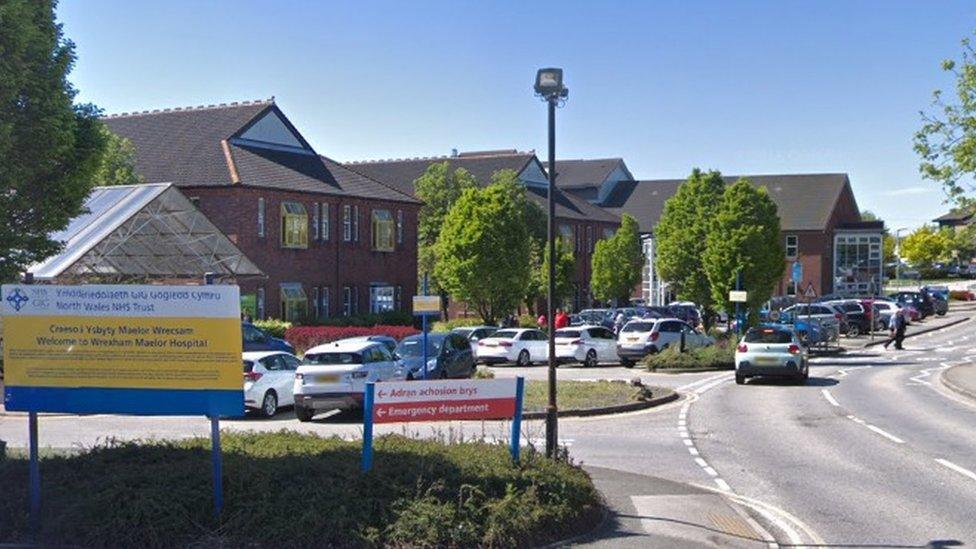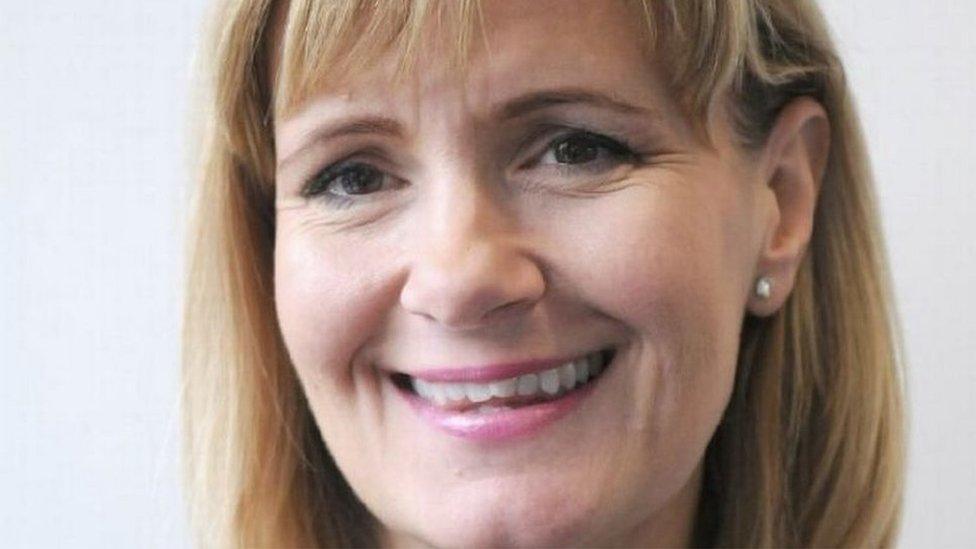Wrexham sepsis death: Samantha Brousas told 'no hospital bed'
- Published

Samantha Brousas had just started a new job when her condition deteriorated
A woman who died from sepsis was forced to wait in an ambulance for almost three hours because there were no hospital beds, an inquest has heard.
Samantha Brousas, 49, from Gresford, Wrexham, died on 23 February 2018.
Paramedic Steffan Jarvis said that two days before she died he assessed her at home as high risk and critically ill.
The Ruthin inquest also heard the emergency department at Wrexham Maelor Hospital was so busy that day it was "dangerous and unsafe".
Mr Jarvis said he and his colleague Kelvin Watkiss assessed Ms Brousas as having a national early warning score (News) of 11 and a decision was made to take her to hospital.
A further assessment in the ambulance found the News score had increased to 14, indicating she was "high-risk, critically ill".
Based on the readings they felt "sepsis was the obvious cause for Sam's illness", Mr Jarvis said.
But a decision was made not to pre-alert the hospital that they were on their way with a critically-ill patient and she was transported without lights and sirens.
"We knew the demand and the chaos that was happening at the department," he said, explaining earlier in the day he had waited outside the hospital for three hours.
On arrival, was told: "We've got no beds. You'll have to put her name on the list."

Ms Brousas was taken by ambulance to Wrexham Maelor Hospital two days before she died
The hearing was previously told Ms Brousas and her partner, Simon Goacher, both had common colds over the new year period but her condition deteriorated days before she died.
Karen Davies, in charge of the emergency department at the time, said it was "in escalation", meaning all resources had been used and all beds taken.
She said one patient had been waiting for a suitable bed for three days and she had made at least three "red calls" that day for assistance.
"It was very dangerous that day and unsafe," she said.
"I found it to be very unsafe and overwhelming. I was struggling to keep on top of the shift because there were so many incidents."
'Staff overloaded'
She felt it was "pointless" to put out an escalation call after 5pm because there was probably no manager and escalation calls were made so often it was referred to as "background noise".
Stephen Jones, lawyer for the family, asked: "Did it reach a point where you thought you can't press that button again because nothing happened after the first three times?"
She replied: "Yes and I probably didn't have time to do it."
Asked about her conversation with Mr Jarvis, Ms Davies said she was not given the full list of observations and added: "I don't recall him saying sepsis."
A health board probe found the emergency department overcrowding had been "severe" and staff were "overloaded".
The inquest continues.
- Published20 November 2019
